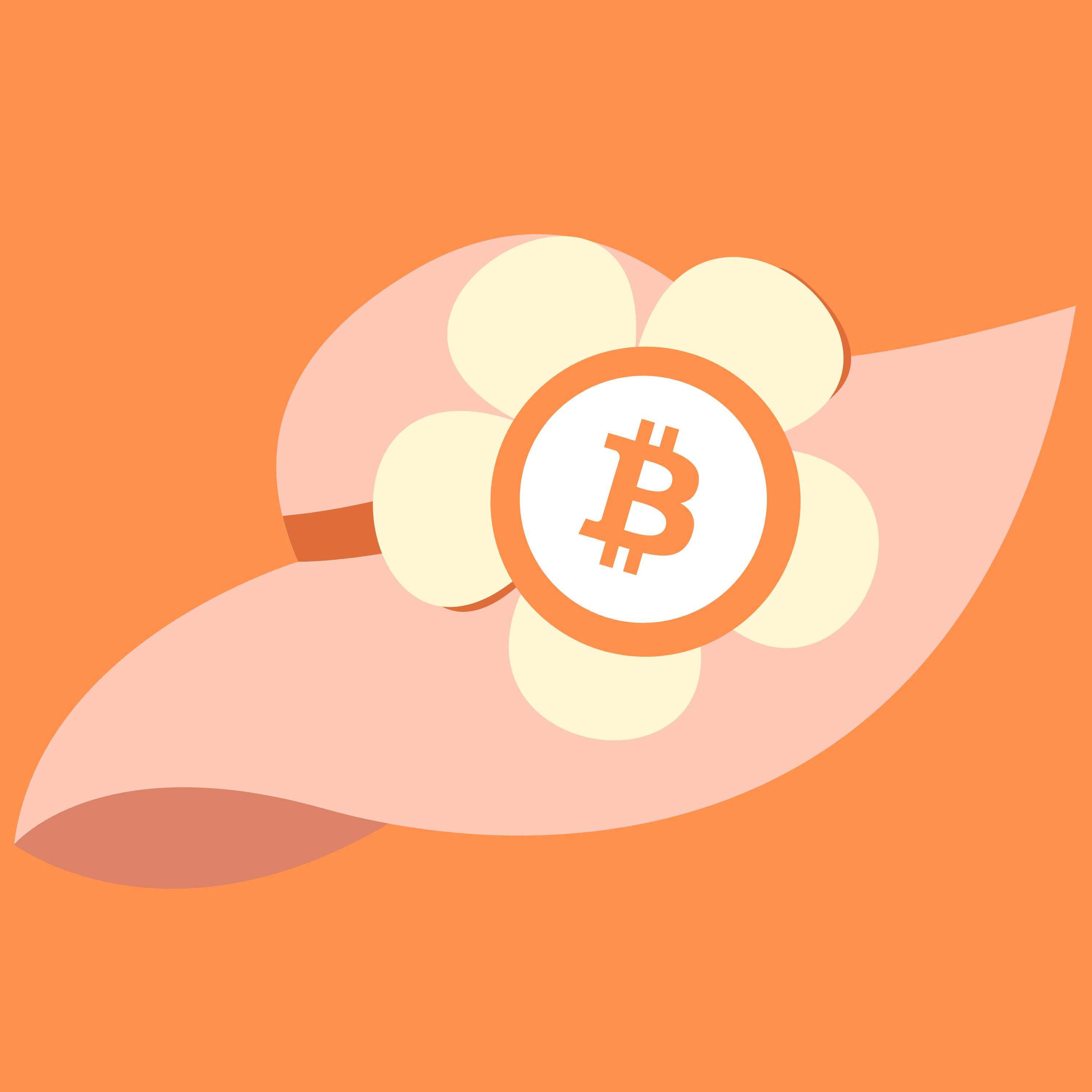Episode 56
Chat with Lindsay, "On our first date, he bought a house with Bitcoin!" - part 2
Key Takeaways
- A generational shift: The younger generation's response to a dwindling value of money and the impact on spending habits.
- Income disparities and how those in higher income brackets feel less consequences from inflation.
- Root causes in the financial system vs. healthcare system: Parallels drawn from Lindsay's experience in nursing.
- The broken financial system: The dangers of a centralized, limitless money supply.
Parallels Between Healthcare and Bitcoin
- The responsibility of individual health: How personal health management is crucial in our current healthcare system.
- The call for self-education: Empowering oneself to make informed decisions about health and finance.
Bitcoin's Potential
- The hope of a decentralized, sound money system.
- The security of personal wealth and autonomy that Bitcoin offers.
- Personal realizations: The relationship between money, hope, and envisioning a secure future.
To learn more about Bitcoin: Join the Orange Hatter Women's Reading Club. Visit https://www.meetup.com/womensbitcoinreadingclubwithorangehatter
Please email questions/comments to Tali@orangehatter.com
HODL UP is available at www.freemarketkids.com.
Remember: Knowledge is empowerment! 🍊🎩
Mentioned in this episode:
Free Market Kids Short
Get your HODL UP ("The best bitcoin game ever!") at www.freemarketkids.com.
Transcript
Hi everyone.
Tali:Welcome to Orange Hatter.
Tali:Today you're listening to part two of my conversation with Lindsay.
... Lindsay:and I guess the, the economic principle at play here is like, it must
... Lindsay:be, it must be worth it to me or else I would go and choose something else.
... Lindsay:You know, ultimately I am, I am choosing, I.
... Lindsay:This trade off, but it's still really painful, just, you know, to
... Lindsay:be, to be doing the same work and being paid so much less for it.
... Lindsay:So I think that relates to inflation because, you know, it's
... Lindsay:like our, our dollars are worth.
... Lindsay:Less tomorrow than they're worth today.
... Lindsay:And you've talked about this on your podcast, just how that incentivizes
... Lindsay:my generation and younger generations to just spend in much different
... Lindsay:ways than older generations.
... Lindsay:And I related to that so much when I listened to that podcast
... Lindsay:interview of yours, just to...
... Lindsay:what it feels like to have like hope for my financial future in this particular
... Lindsay:landscape, um, with the particular earning potential that I have at my,
... Lindsay:my day job, this job that I'm trained to do, versus just being able to invest
... Lindsay:and see like return on investment.
Tali:I think inflation is that, that topic that is so expected and so ingrained
Tali:in our everyday experience that we almost stop questioning it at some point.
Tali:It's just like you just know that things are gonna get more expensive, and yet
Tali:your income just got cut by a half in exchange for a better lifestyle.
Tali:And the question I asked myself is why the choices are so skewed in a way.
Tali:I just came back from visiting family in a part of the country where the
Tali:average household income is $600,000 and.
Tali:I'm driving through the streets and I'm looking at the houses,
Tali:and I'm thinking to myself, why is, why is the difference so huge?
Tali:I, and then I, I interact with those people and I, I interact
Tali:with people locally, right?
Tali:I'm, I'm living in Kentucky, and I don't feel like one is working
Tali:so much harder than the other.
Tali:Or I guess if you, if you talk about the value of your work, that's, that's
Tali:a whole nother, you know, discussion.
Tali:But, the, the ease of dealing with inflation is just not,
Tali:it's just night and day.
Tali:Because for, for a household that is making that much money, when the gas
Tali:prices go up, when the, you know, the food prices go up, it, it's neither here nor
Tali:there for them it's just pocket change.
Lindsay:Right.
Lindsay:It's, they don't get hit as hard...
Tali:Yeah.
... Lindsay:by inflation.
... Lindsay:Right.
Tali:But for you, you're exchanging literally your labor, your, your life
Tali:essence, which is your time, right?
Tali:What is life?
Tali:Life is your time.
Tali:You're exchanging your time for money and to see it give you less
Tali:and less back is really difficult.
Tali:So let's talk a little bit about the root cause of that because, and maybe
Tali:make a comparison between us looking at questioning what's going on in the
Tali:financial system and what is going on in the healthcare system, draw some parallels
Tali:based on your experience with nursing?
Lindsay:So one thing about me as a nurse and just as a person, I'm really
Lindsay:interested in figuring out root causes.
Lindsay:I've been told that I should have become an engineer and
Lindsay:I take that as a compliment.
Lindsay:My grandfather was an engineer and I, I appreciate just, you know,
Lindsay:being, told that it seems like I have a problem solving mind.
Lindsay:I think I do.
Lindsay:So yeah, I'm, I just like to get more underneath, like, why,
Lindsay:why is this illness happening?
Lindsay:Why is this symptom happening?
Lindsay:And I don't want to just treat the symptom or just sort of eliminate the
Lindsay:problem through means that are not really addressing what's underneath it.
Lindsay:And I think that that parallels some of the decisions by our government,
Lindsay:the Federal Reserve, just the powers that be in that, in, in our system.
Lindsay:You know, the taxation in general is like a whole topic that we
Lindsay:could spend lots of time on.
Lindsay:But you know, the stimulus payments during covid and student loan forgiveness,
Lindsay:like all of the things we are in these economic, it's like a crisis for people...
Lindsay:Inflation, which we've already talked about, but like the root cause of
Lindsay:why all these things are happening is because the money is broken.
Lindsay:And I'm not the first person to say that, and I probably can't
Lindsay:explain it the best, but our, our money is, it's an unlimited supply.
Lindsay:It just gets printed.
Lindsay:It's completely centralized.
Lindsay:And it's just very susceptible to inflation.
Lindsay:And as you were saying, it's like there's a class of people who benefit
Lindsay:from inflation and there's a class of people who just get absolutely
Lindsay:financially destroyed by it.
Tali:Yeah.
Tali:And based on your experience working in healthcare, what is
Tali:it like in the established uh, system today in healthcare?
Lindsay:Well, so I have my experience in the NICU and I have my experience
Lindsay:in the ER, and both of those places are, are areas of Western medicine
Lindsay:where I feel like, like, yes, we really need to be doing things.
Lindsay:These aggressive interventions that we're doing, like intubation, you know, patients
Lindsay:being on a ventilator using IV nutrition and medications to keep somebody's
Lindsay:heart beating, like these are all things that I think are really important.
Lindsay:But one thing that kind of surprised me about the ER, I guess I was naive
Lindsay:going into that experience, but how much of it was not emergency medicine?
Lindsay:I worked in a really busy ER in Nashville, kind of on the outskirts of town,
Lindsay:but in a very diverse part of town.
Lindsay:We had gunshot victims and drug overdoses and you know, people who had just gone
Lindsay:into cardiac arrest in the community.
Lindsay:And those people would come by ambulance and we would all swarm
Lindsay:them and, you know, save their lives.
Lindsay:And then like 75% of the rest of the ER was people who were there for
Lindsay:like primary care or urgent care.
Lindsay:So a lot of that ended up just being like symptom management.
Lindsay:People would come in feeling nauseous and we'd give them nausea
Lindsay:medicine and send them on their way.
Lindsay:And while I do think, you know, those types of patients don't need to be
Lindsay:crowding the emergency room, we also, it is just not at all concerned with
Lindsay:like addressing people's like lifestyles that contribute to whatever symptom
Lindsay:or illness they may be experiencing.
Lindsay:And I do think, I think that that's like on us as individuals to get curious about
Lindsay:our own health and like, you know, I, I'm not trying to say that any of those
Lindsay:patients who came to the ER with nausea were, were in the wrong necessarily.
Lindsay:But I think that, you know, they will, they may or may not get a bill for
Lindsay:that, just depending on, you know, what their situation is and you know,
Lindsay:insurance or tencare or whatever it is.
Lindsay:But they have to want to figure out how to best care for their own bodies.
Lindsay:And I don't think that our system really encourages people to do that.
Tali:I think it comes down to education for sure.
Tali:Right?
Tali:Because if we draw a parallel back to the monetary system, it's your
Tali:health, so get educated so that you can be empowered to keep your health.
Tali:And it's the same thing with the monetary system.
Tali:If you get educated, you are empowering yourself to take
Tali:care of your financial future.
Tali:I think that it's really easy to sit back and be told the right
Tali:path to take, but that right path may not be the right path for you.
Tali:It's just a sort of generalized, pretty picture right path.
Tali:You know, like I, I have mentioned in, in other interviews, Scott
Tali:and I follow the right path and.
Tali:The right path works for a lot of people, but it certainly
Tali:doesn't work for everyone.
Tali:And I wish that I had known better to look at alternatives or even to question the
Tali:right path, but I, I didn't take charge.
Tali:I assumed, I kind of sat back and I, I was comfortable and I assumed that what
Tali:I was told was the, the only best path.
Lindsay:I have a friend who describes that as like outsourcing your, your
Lindsay:knowledge about a particular topic.
Lindsay:And I think that that's how a lot of people approach their own healthcare.
Lindsay:Just, you know, I'm not an expert on this.
Lindsay:I'm gonna trust my doctor and I'm gonna stay healthy that way.
Lindsay:And I think maybe there was a time.
Lindsay:In history where the system was set up to where that was, that was a decent
Lindsay:way to go about managing your health.
Lindsay:But I don't think that's the, the age that we're living in.
Lindsay:I think if, if you do decide to outsource your, you know, your own health,
Lindsay:to those experts, you are gonna be getting a one size fits all approach
Lindsay:back and one size does not fit all.
Lindsay:So the way that I have navigated this system for myself is just by, by
Lindsay:educating myself and learning about, you know, how to best care for my body.
Lindsay:So, not that I do that perfectly, um, but just really like, being our own advocates.
Lindsay:I think we do have to do that.
Lindsay:It's unfortunate that the media and, you know, the powers that be, you
Lindsay:know, CDC and places like that, really, really silence people who question.
Lindsay:So that's, that's been disappointing to me in covid times and after, because
Lindsay:science is meant to be tested and the best science is science that's repeatable.
Lindsay:But that isn't, that isn't really allowed to be talked about these days.
Tali:Let's talk more about the hope that Bitcoin provides.
Tali:So you mentioned that when you go to Bitcoin Park and you listen to the
Tali:panel discussions, what you sense is this general, collective sense
Tali:of hope and kinda looking forward to the future, because we talk so much
Tali:about leveling the playing field.
Tali:Can you give our listeners maybe just a general description of what
Tali:the Bitcoiners put their hope in and what that future looks like.
Lindsay:Yeah, so I think the source of hope that I pick up on at those Bitcoin
Lindsay:meetups, it's just the hope of sound money, money that has a fixed supply that
Lindsay:is decentralized, that allows people to take personal custody of their wealth.
Lindsay:Especially as we've seen people relying on the, you know, current financial system,
Lindsay:banks, just have their, their assets completely frozen and just inaccessible.
Lindsay:That's a real thing that can happen, and I don't think a lot of people have
Lindsay:realized that it could happen to them.
Lindsay:And that having our own sound money really protects our freedom as individuals
Lindsay:to express ourselves authentically, to live at peace with other people.
Lindsay:So I think that it, it, I mean, it really does come down for me
Lindsay:to the inflation piece because I, I am not motivated to save money.
Lindsay:When that money is going to be worth way less in the future than it is now.
Lindsay:And I've, I've always struggled to save money.
Lindsay:I, I love, you know, if I've ever kind of come into like a bonus or,
Lindsay:you know, I've worked a contract that was, really high paying and could,
Lindsay:could bank a, a bunch all at once.
Lindsay:I've, I've generally been excited to spend that money on like a home
Lindsay:improvement or, you know, something like that rather than just putting it in the
Lindsay:bank or putting it in the stock market.
Lindsay:So I, I'm not the best person to speak about saving money, but I had a revelation
Lindsay:kind of recently about why I don't save.
Lindsay:And why I don't...
Lindsay:just, why thinking about saving money just makes me feel like
Lindsay:really depressed in life.
Lindsay:Like yeah, I, I realized that like, saving money is for people
Lindsay:who have hope about the future.
Lindsay:Um, and it, it just really all clicked for me where I was like, wow, this
Lindsay:is like really confronting because.
Lindsay:I'm like, you know, confronted with my own, kind of just hopelessness in life.
Lindsay:You know, a lot of things in my life have not turned out like I wanted them
Lindsay:to, and so just dealing on a daily basis with like having hope for the
Lindsay:future has been a struggle for me.
Lindsay:But yeah, particularly, when it comes to money, because when we think about
Lindsay:the future, what, like, what that future looks like is really dependent
Lindsay:on our ability to, you know, provide the necessities of life for ourselves.
Lindsay:So it's, it feels kind of like weird to put so much hope in a money, but we're
Lindsay:all doing that in one way or another.
Lindsay:If we, if we're not honest with ourselves, that like money is really
Lindsay:important for our futures, you know, that it's just we deceive ourselves.
Tali:Thanks for joining us today and learning with us today.
Tali:If the discussion with our guest resonated with you and you would
Tali:like to dive deeper into the world of Bitcoin, don't miss out on joining the
Tali:Orange Hatter Women's Reading Club.
Tali:The meetup link is in the show notes.
Tali:Also, if there are women in your life whom you think would both enjoy and
Tali:benefit from learning more about Bitcoin, please share Orange Hatter with them.


